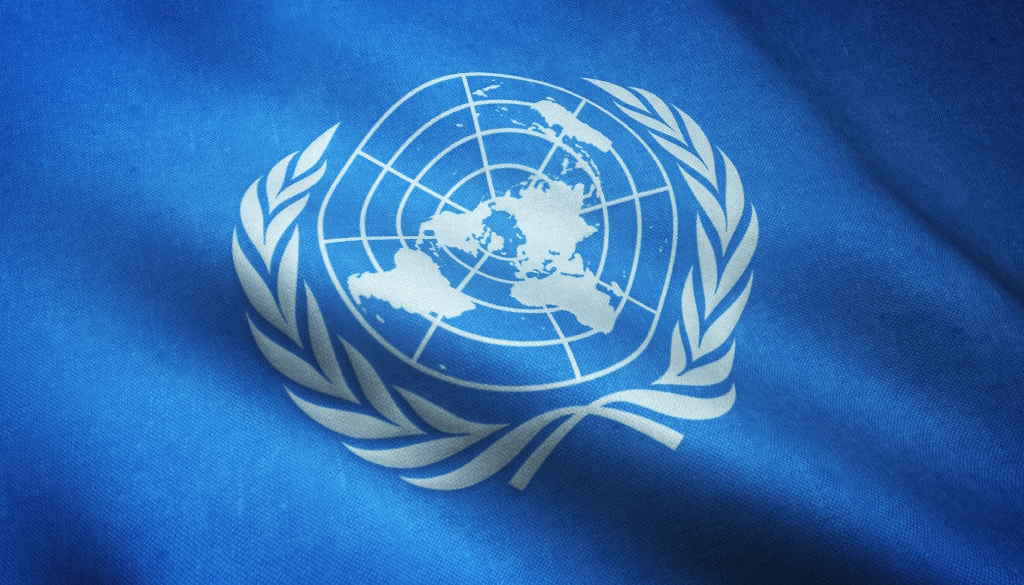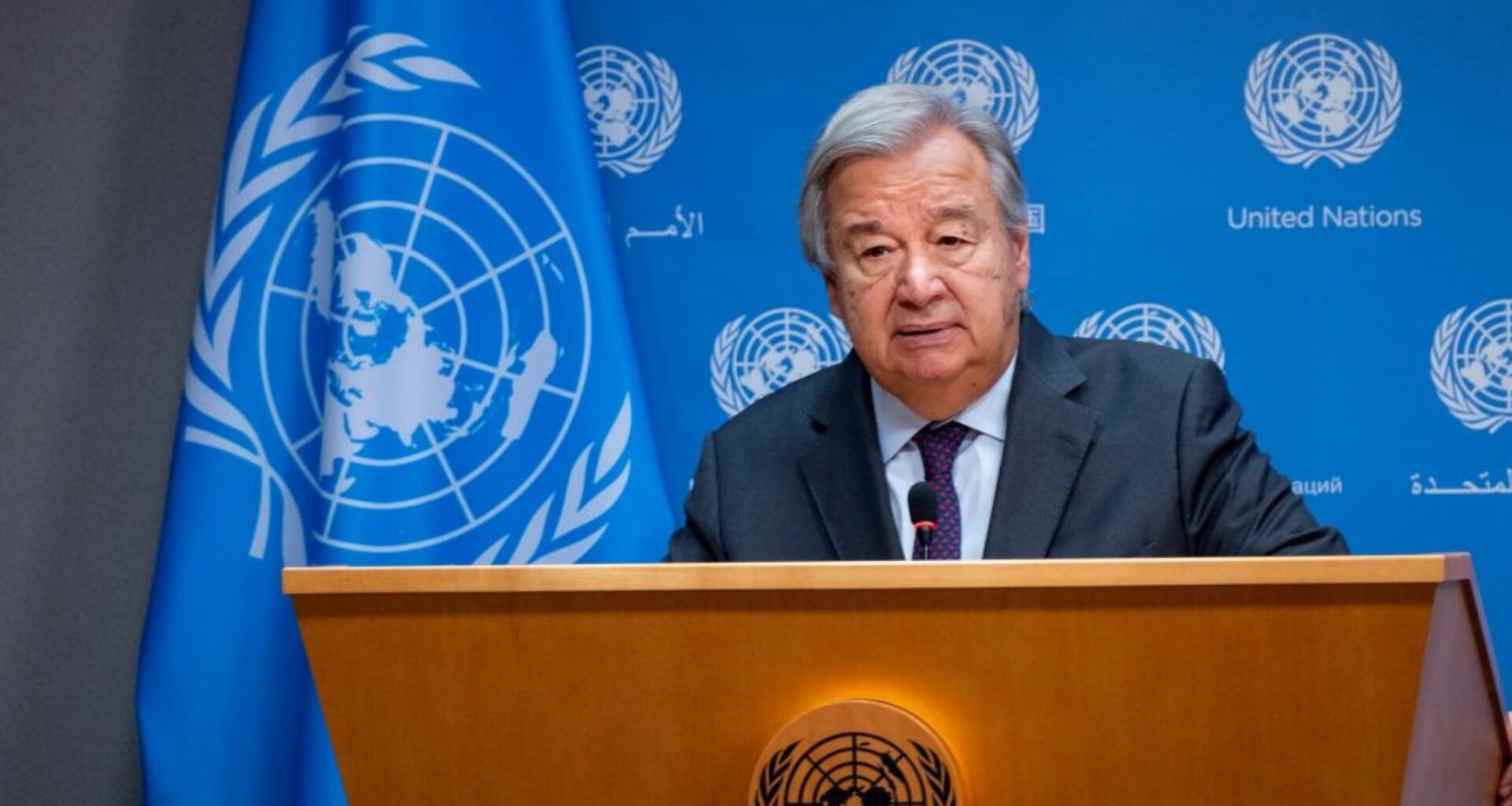UNITED NATIONS – Bünyamin Sürmeli – At the United Nations building in New York, UN Secretary-General Antonia Guterres drew attention to the recent extreme heatwave and called on developed countries to keep their promises on climate action.
“Last Monday, July 22, was the hottest day on record, surpassing the previous record set just one day earlier. Let’s face facts, extreme temperatures are no longer a one-day, one-week or one-month event. If there is one thing that unites our divided world, it is that we are all feeling the heat more and more.”
Among the points Guterres made at the press conference was that extreme heatwaves are becoming more dangerous for humanity.
“Billions of people are facing an extreme heat epidemic”
Secretary-General Guterres continued: “The world is getting hotter and more dangerous for everyone, everywhere. Billions of people are facing an epidemic of extreme heat, wilting under increasingly deadly heat waves around the world, with temperatures exceeding 50 degrees Celsius. This year, we have seen a deadly heatwave hit the sub-Saharan region, causing an increase in hospitalizations and deaths.”
Commenting on the impact of heat records in the United States, Guterres said: “In the United States, heat records have reportedly exposed 120 million people to heat advisories. Scorching conditions killed 1,300 pilgrims during the Hajj, and school closures in Asia and Africa affected more than 80 million children.”
“13th consecutive month of record-breaking temperatures”
“The World Meteorological Organization, the Intergovernmental Panel on Climate Change, and others have documented a rapid increase in the magnitude, intensity, frequency, and duration of extreme heat events. This is occurring against a backdrop of steadily rising temperatures; June is officially the 13th consecutive month in which global temperature records have been broken. Extreme heat is increasingly wreaking havoc on economies, deepening inequalities, undermining the Sustainable Development Goals and killing people.”
Noting that heat is estimated to kill nearly half a million people a year, Guterres said: “That’s almost 30 times more than tropical cyclones. We know what is causing it: fossil fuels and human-induced climate change. And we know it is only going to get worse. Extreme heat is the new abnormal. But the good news is that we can save lives and limit its impact.
“We are launching a global call to action”
Secretary-General Guterres called on the world to take global action, saying, “Today, we are launching a global call to action with four focus areas. First, care for the most vulnerable. Killer heat is everywhere, but it does not affect everyone equally. Among the most vulnerable are the urban poor. Pregnant women, people with disabilities, the elderly, children, the sick, the displaced and the poor, who often live in substandard housing without access to cooling”.
Referring to the impact of extreme temperatures, Guterres said, “Heat-related deaths among people over 65 have increased by 85 per cent in 20 years. UNICEF tells us that nearly 25 percent of all children are now exposed to frequent heat waves. By 2050, this could rise to nearly 100 percent. The number of urban poor living in extreme heat could increase by 700 percent”.
“The United Nations Environment Programme estimates that these measures could protect 3.5 billion people, reduce emissions and save consumers $1 trillion a year by 2050,” Guterres said.
“The World Health Organization estimates that scaling up heat-related health warning systems in just 57 countries could save nearly 100,000 lives a year. Funding to protect communities from climate chaos is essential. I call on developed countries to keep their promises and show how they will close the adaptation finance gap.”
“A new International Labour Organization report released today warns that more than 70 per cent of the world’s working population (2.4 billion people) are at high risk from extreme heat. When daily temperatures rise above 34°C (or 93.2°F), labor productivity falls by 50 percent. We need human rights-based measures to protect workers.
Third, Guterres called on economies and societies to use data and science to significantly increase their resilience, saying: “Extreme heat is affecting almost every sector: Infrastructure collapses, crops fail, and pressure mounts on water supplies, health systems and electricity grids. Cities are of particular concern; they are heating up twice as fast as the global average”.
“In closing, I would like to make one very important point: our focus today is on the effects of extreme heat. But let us not forget that there are many more devastating symptoms of the climate crisis: hurricanes, floods, droughts, fires, rising sea levels, and the list goes on.”
“The biggest disease of our world right now is fossil fuel addiction and climate inaction. Governments, especially the G20 countries, must act as if our future depends on it, because it does. All countries must submit nationally determined contributions or national climate action plans to limit global temperature rise to 1.5 degrees Celsius by next year.”
“Fossil fuels must be phased out quickly and equitably.”
Addressing the leaders of all countries, Guterres said, “I must highlight the fossil fuel boom we are seeing in some of the richest countries in the world. By signing up to such a huge number of new oil and gas licenses, they are signing up to our future. Countries need to phase out fossil fuels quickly and fairly. They need to stop new coal projects. The G20 must shift fossil fuel subsidies to renewable energy and support vulnerable countries and communities.
“National climate action plans must also show how each country will contribute to the global targets agreed at COP28 to triple the world’s renewable energy capacity and end deforestation by 2030. They must also reduce global fossil fuel consumption and production by thirty percent,” he added.
“The message is clear: extreme heat is having an extreme impact on people and the planet. The world must rise to the challenge of rising temperatures,” concluded Gutterres.



 UN
UN 



